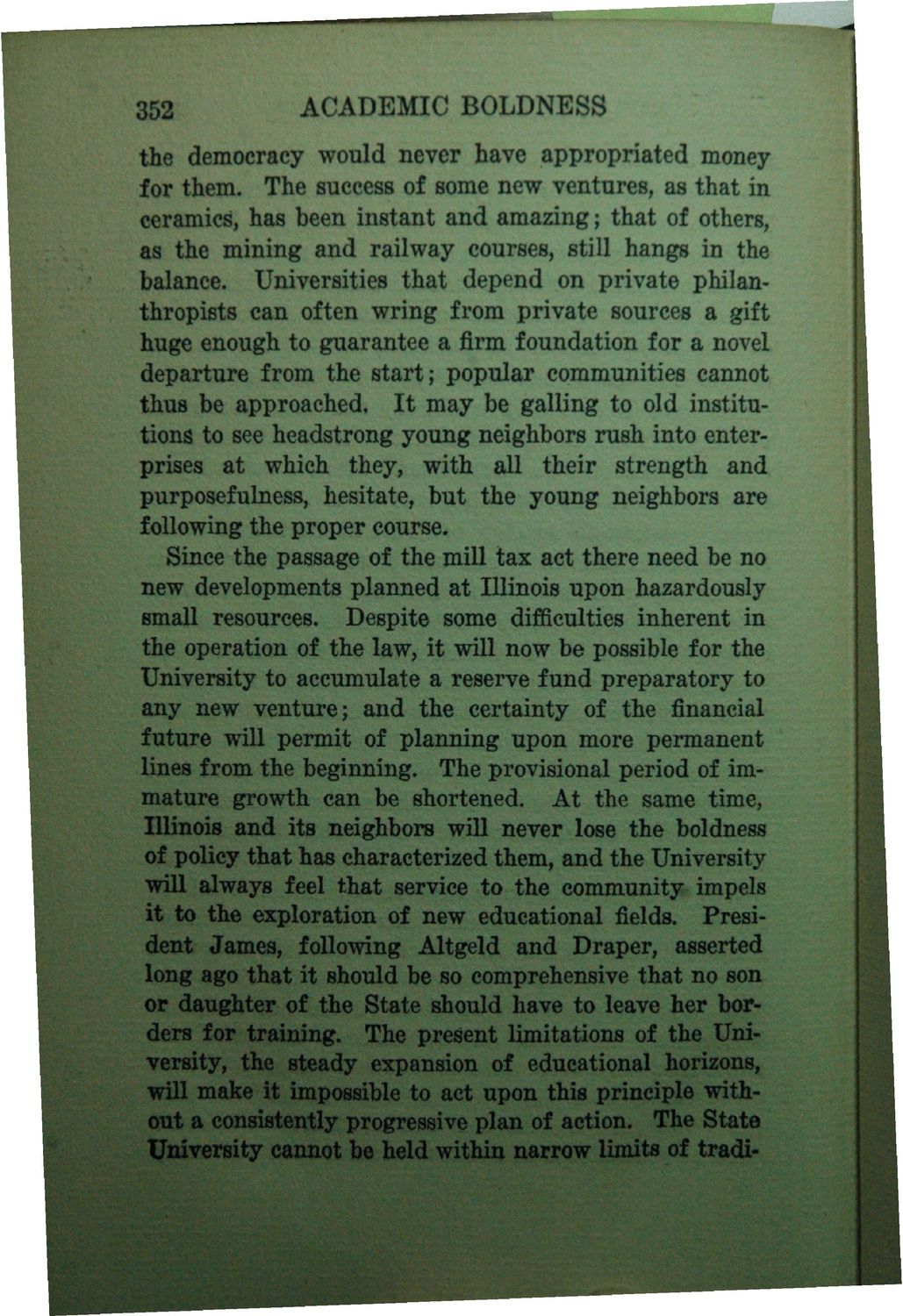| |
| |
Caption: Book - History of the University (Nevins)
This is a reduced-resolution page image for fast online browsing.

EXTRACTED TEXT FROM PAGE:
352 ACADEMIC BOLDNESS the democracy would never have appropriated money for them. The success of some new ventures, as that in ceramics, has been instant and amazing ; that of others, as the mining and railway courses, still hangs in the balance. Universities that depend on private philanthropists can often wring from private sources a gift huge enough to guarantee a firm foundation for a novel departure from the start; popular communities cannot thus be approached. It may be galling to old institutions to see headstrong young neighbors rush into enterprises at which they, with all their strength and purposefulness, hesitate, but the young neighbors are following the proper course. Since the passage of the mill tax act there need be no new developments planned at Illinois upon hazardously small resources. Despite some difficulties inherent in the operation of the law, it will now be possible for the University to accumulate a reserve fund preparatory to any new venture; and the certainty of the financial future will permit of planning upon more permanent lines from the beginning. The provisional period of immature growth can be shortened. At the same time, Illinois and its neighbors will never lose the boldness of policy that has characterized them, and the University will always feel that service to the community* impels it to the exploration of new educational fields. President James, following Altgeld and Draper, asserted long ago that it should be so comprehensive that no son or daughter of the State should have to leave her borders for training. The present limitations of the University, the steady expansion of educational horizons, will make it impossible to act upon this principle without a consistently progressive plan of action. The State University cannot be held within narrow limits of tradi-
| |